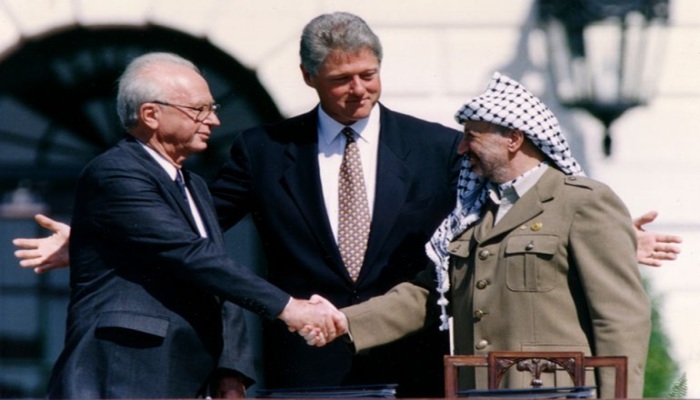
Afrasianet - Abd El, Aziz Al, Mustafa - At a time when the slogans of comprehensive peace and regional stability, supported by trade deals and economic prosperity that will pervade the region, a fundamental question looms on the horizon for anyone with any mind: Is the peace promoted in our region a real peace, based on justice and the restoration of rights to their owners? Or is it just an illusion that promotes the imposition of a fait accompli and the dilution of fateful issues, so that the old die and the young forget about them?
It is reported that British Prime Minister Arthur Neville Chamberlain, when he felt that Hitler was thinking of invading Britain, tried hard to dissuade him from his plans, and traveled several times to Germany, culminating in the signing of the famous Munich Treaty of 1938, through which he gave up many British interests in order to avoid a Nazi invasion!
In some contexts, "peace" has turned into a political tool used to buy time, or to pass grand schemes that empty peoples of their dignity and historical rights, especially in a tragedy such as the central issue – not only for the Arabs, but for all of humanity – the issue of Palestine, which has been bleeding for seven centuries.
Chamberlain returned as a champion of peace, waving the treaty papers to reporters and saying confidently: "Peace with honor. You have brought peace to our time!" But the winds went against the expectations of a politician who dreamed of peace and prosperity for his country; it was only a few months before the outbreak of World War II broke out, and that document was just a paper in the Nazi storm, not worth the price of the ink with which it was written. Chamberlain believed the promises of peace, while the German war machine sharpened its knives behind diplomatic smiles, until the plans were completed.
Many people talk about peace, but they ignore that real peace is not granted, but taken away, because peace is not a surrender deed, nor a card signed by the weak in order to covet the mercy of the strong, but rather a state of balance that restores rights and prevents further wars.
Experience has shown that the occupation only understands the language of force, and confrontation with it does not necessarily mean an unequal bloody war, but rather requires, with the weakest faith, the rejection of hegemony, a call for vigilance, a cry in the face of regional impotence, a warning against repeating the mistakes of humiliating compromises, resistance to normalization, clinging to identity, and building a renaissance project capable of achieving the requirements of steadfastness.
Unfortunately, in some contexts, "peace" has turned into a political tool used to buy time, or to pass grand schemes that empty the peoples of their dignity and historical rights, especially in a tragedy such as the central issue – not only for the Arabs, but for all humanity – the issue of Palestine, which has been bleeding for seven centuries.
Experience has shown that those who bet on the "illusion of peace", without having the cards of power, end up in the circle of dependency; the enemy does not respect the weak, does not give rights for free, but rather seizes opportunities and exploits political humiliation and military collapse. As for those who prepare the numbers and base their will on steadfastness and dignity, they are the only ones who create a real negotiation path, in which they impose their conditions from a position of strength rather than surrender.
Anyone who reviews the "peace initiatives" of the last two decades realizes that they often end up normalizing relations with the aggressor entity, without making any real concessions on its part, and here a deliberate confrontation becomes the only way to rebalance.
History has taught us that nations that bow under the illusion of peace and the bayonets of power lose their compass and lose their causes, while those who choose conscious confrontation write history, make peace, and achieve prosperity on their own terms.
Yes, our peoples yearn for security, and peace is a lofty goal, but it is not built on the noise of dreams, or on the rubble of houses, and the bombing of cities!! Peace is not achieved with those who despise your existence and underestimate your blood! Relying on an incomplete peace makes us erode from within, raise submissive generations, and lose the last pride and pride we have.
In conclusion, our nation and our region today are at a crossroads: either they unite their positions, wake up from their slumber, and realize that peace is not bought from the political markets, but is made by the will of the free, or they continue to chase the mirage of compromises until they disappear into the desert of tricks and the cunning of the enemies.
The reality remains, as Malik bin Nabi said: "Colonialism does not leave a land unless it feels that the soil is no longer suitable for cultivation." Let our soil be a resistance, and let our consciousness be our first weapon.

